‘Bugonia’ urges us to ask, ‘what’s real and what isn’t?’

“Bugonia” (2025). Cast: Emma Stone, Jesse Plemons, Aidan Delbis, Alicia Silverstone, Stavros Halkias. Director: Yorgos Lanthimos. Screenplay: Will Tracy and Jang Jiin-hwan. Source Material: Jang Jiin-hwan, writer-director, “Save the Green Planet!” (“Jigureul jikyeoral!”) (South Korea) (2003). Web site. Trailer.
But is this standing truly deserved, or does she simply have a good PR team behind her? While the public seems generally accepting of this esteemed repute, not everyone buys it. That even includes some who are close to her, most notably Teddy Gatz (Jesse Plemons), one of her company’s low-level employees. Having worked inside the company for years, he’s seen things that don’t sit right with him. He doesn’t trust the big boss, believing not only that she isn’t what she claims to be, but that she’s actually the driving force behind something clandestine and exceedingly nefarious.
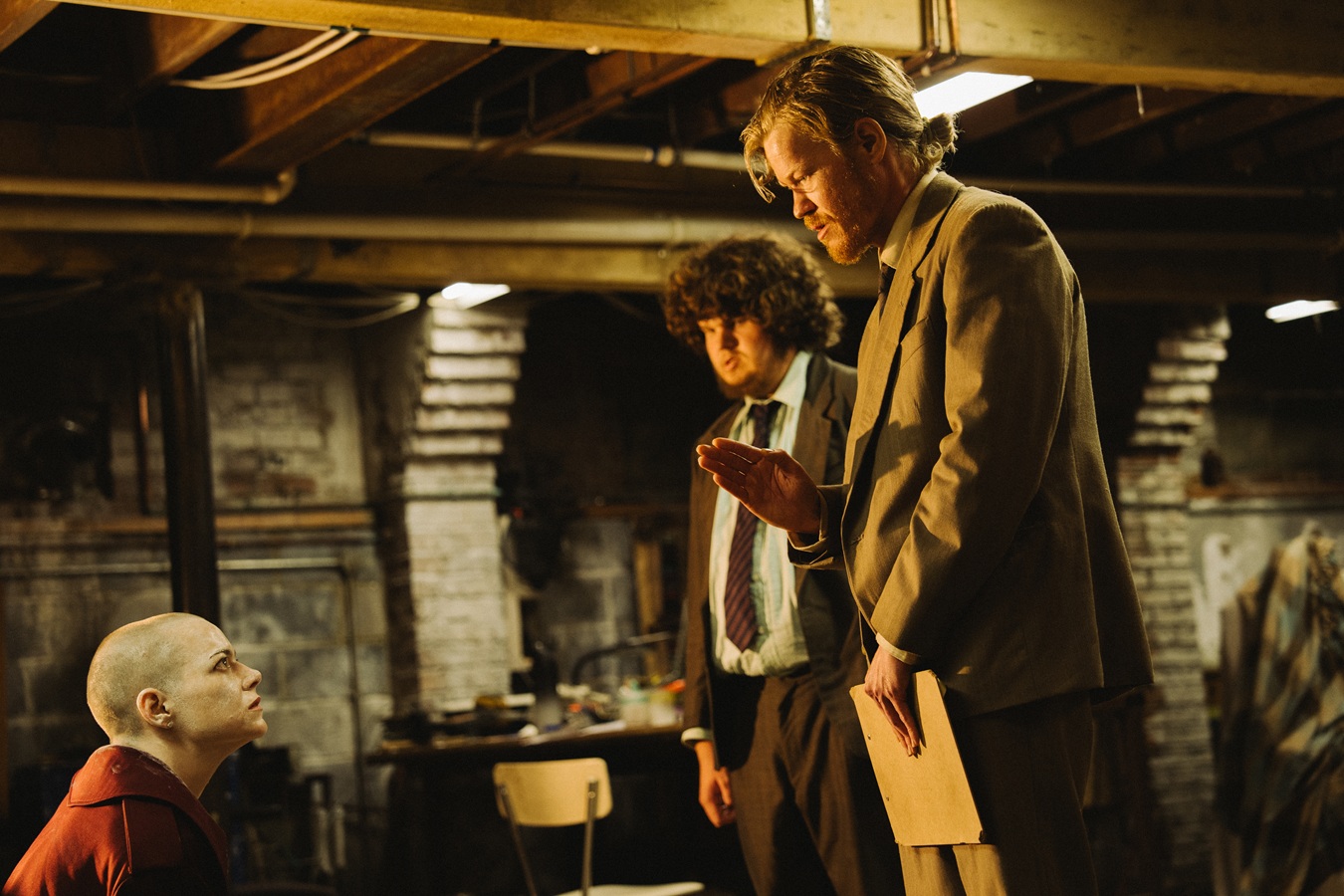
But is Teddy’s belief true or the result of a paranoid imagination gone wild? What exactly does he think she’s out to accomplish and why? And what, if anything, does he plan to do about it? To understand this, one needs to know something about his background and how he’s cultivated this mindset.
Essentially, Teddy is the walking embodiment of every conceivable conspiracy theory wending its way through cyberspace and alternative media. He has become an ardent proponent for them, becoming a sort of poster child for their contentions. Some of these notions may, admittedly, have a semblance of credibility underlying them, but others are readily perceived as so outrageous that it’s hard to believe anyone could conceive of them, let alone take them seriously. Nevertheless, he’s so on board with them that they positively define the nature of his prevailing outlook.
In particular, Teddy believes that, through various means, his boss and her associates have turned humanity into a docile, compliant, subservient species unwittingly leading itself down a self-destructive path. He believes she’s an alien from Andromeda charged with taking over the planet, even if that means killing off Earth’s population to achieve that goal. He’s convinced that Ms. Fuller, as the head of an enterprise that deals in the manufacturing and marketing of various chemicals, is out to ostensibly poison the environment and the human race, partly for profit and partly for a bigger, undisclosed agenda. He’s certain, for example, that her company’s production of substances known as neonicotinoid pesticides contributed significantly to a decline in global honey bee numbers, a phenomenon known as colony collapse disorder (CCD), an initiative that he believes was no accident. And, as a part-time beekeeper himself, he believes he’s on the front line of an environmental degradation issue that could result in considerable human depopulation, given that bees are the principal pollinators of crops that account for much of the world’s food supply. In his view, what better way is there to kill off humanity than to starve its constituents to death?
But killing bees and diminishing the supply of food stuffs aren’t the only ways the CEO is working her evil ways. Teddy believes she and her conspirators have intentionally tainted consumer products with substances that have quietly but fundamentally led to insidious health conditions like the ongoing chemical castration of the male population, a nefarious way of slowing the birth rate and reducing the number of human newborns. What an evil genius, to be sure.
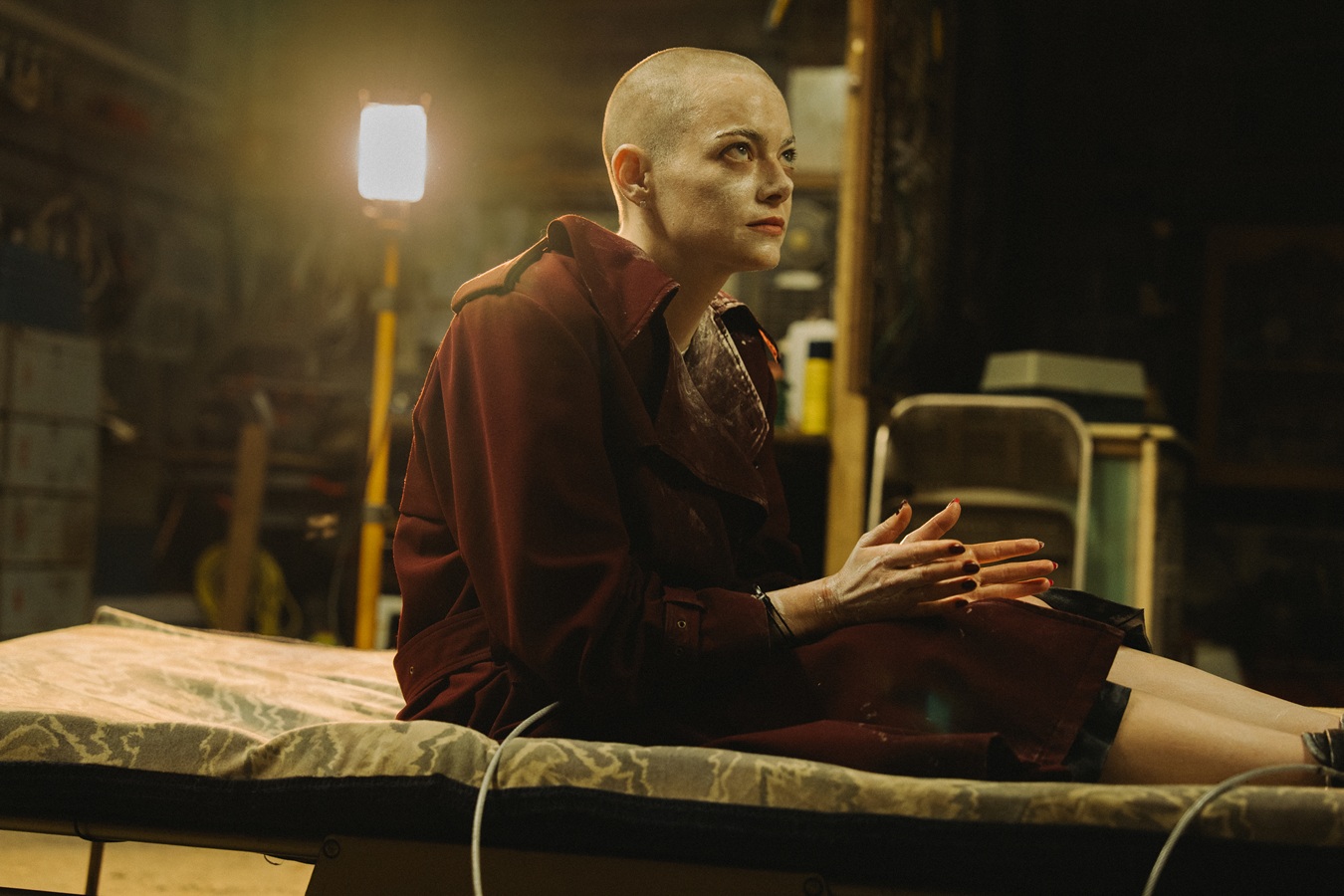
And, when the foregoing measures aren’t enough to achieve the vile alien’s goal, Teddy believes that she will resort to other, more direct means, such as implementing drug treatments that are inherently ineffective, if not ultimately fatal, despite seemingly heroic efforts to the contrary. This ploy hits particularly close to home for Teddy, given that his mother, Sandy (Alicia Silverstone), has been part of an opioid clinical trial that has left her in a coma. In fact, Teddy is convinced that his mom has been purposely subjected to a procedure that will ultimately go nowhere. He wonders how his boss can possibly live with herself.
Armed with all of this so-called evidence, Teddy insists that something must be done to stop the malevolent Andromedan before it’s too late. But is his theory rooted in legitimate suspicion or delusional, paranoid conjecture based, at best, on seeming coincidence and contrived supposition? Is he a heroic figure or a crackpot in a tin foil hat? And, even if he is correct, what can he do about it?
Teddy decides to take matters into his own hands. With the assistance of his skeptical but slow and gullible cousin, Don (Aidan Delbis), Teddy cooks up a scheme to kidnap Ms. Fuller and hold her hostage until she arranges a meeting for him to negotiate a compromise with her alleged alien cohorts. He proposes that the meeting take place aboard the Andromedan mothership, which is slated to arrive within days, timed to coincide with an upcoming lunar eclipse. However, as this unlikely trio awaits the impending event, they each attempt to outwit the other. Teddy and Don do everything in their power to force their captive into admitting her true identity and agenda. Meanwhile, to counter their efforts, Michelle engages in some crafty psychological warfare to throw them off the track to frustrate them and thwart their plans.
In the meantime, once word of the disappearance of such a high-profile figure as Ms. Fuller makes its way into the media, an all-out search for her begins in earnest. This includes the efforts of local law enforcement, who have identified from cell phone pings that she can be found somewhere near Teddy’s home, where she’s being held, chained to a mattress in the basement under Don’s watchful eye. This development, in turn, prompts a visit from Casey (Stavros Halkias), a bumbling police officer who was once Teddy’s babysitter. He hasn’t seen Teddy in some time, largely because he was apparently involved in some kind of inappropriate behavior with the youngster that has since prompted him to keep his distance. It’s an incident for which Casey now apologizes profusely and repeatedly. And this preoccupation with apologizing keeps him distracted from effectively carrying out the purpose behind his visit, making a complex situation even more complicated as Teddy nervously struggles to keep his composure and a lid on what’s transpiring downstairs.
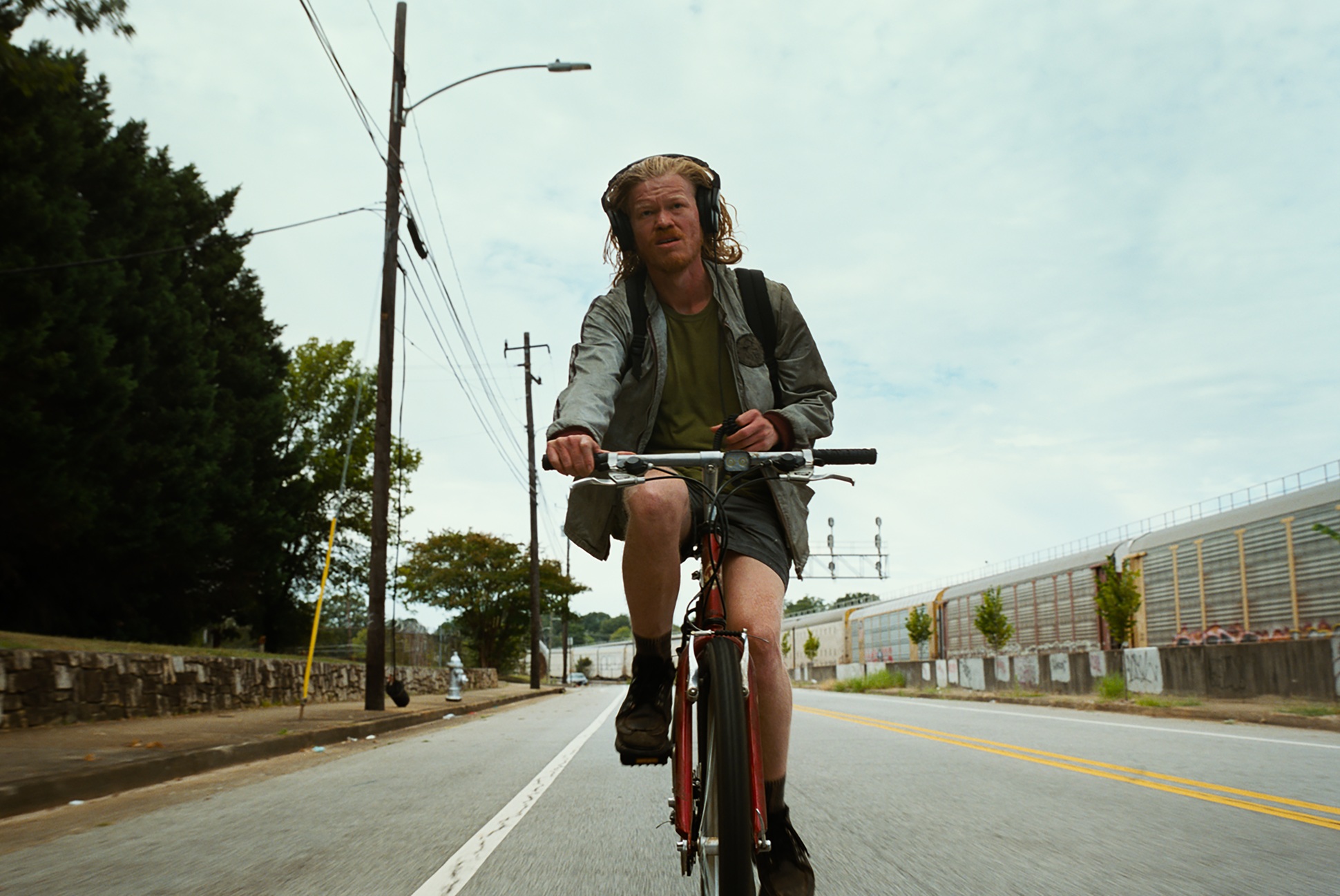
So what’s really going on here? Is this scenario a bona fide cause for concern or just a misunderstanding (albeit, a major one) brought on by the hysterical ravings of a madman? As the story unfolds, there are hints that could potentially swing matters either way. But what is the actual truth underlying these circumstances? And what consequences do they carry? That’s what the film reveals as it plays out. However, in reaching that point, much depends on what one believes, both for characters and viewers alike, and that’s crucial considering the role that our beliefs play in the manifestation of our existence, a product of the conscious creation process, the philosophy that makes such outcomes possible. That’s an especially acute concern for Teddy, Don and Michelle considering everything that’s at stake for their reality, especially since it’s unclear whether any of them have ever heard of this school of thought and the implications connected with it. At the same time, though, it’s also crucial for us as viewers given the metaphor that’s driving in this story, a cautionary tale that we should take to heart for our own existence as we watch events unfold. There could indeed be much riding on what’s taking place on screen, as well as in our own off-screen world. It’s thus important that we pay close attention to both the events playing out and the beliefs that create them in the first place.
Therein lies the power of our beliefs. Considering what they can yield in the end, they’re resources that we should handle with kid gloves. To do otherwise might lead to disastrous outcomes, no matter which scenario ultimately prevails.
This naturally spotlights the all-important question raised at the outset of this blog – what’s real and what isn’t? As the narrative of this film indicates, it may truly be difficult to come up with a decisive, clear-cut answer. So, because of that, this is where the power of discernment comes into play.
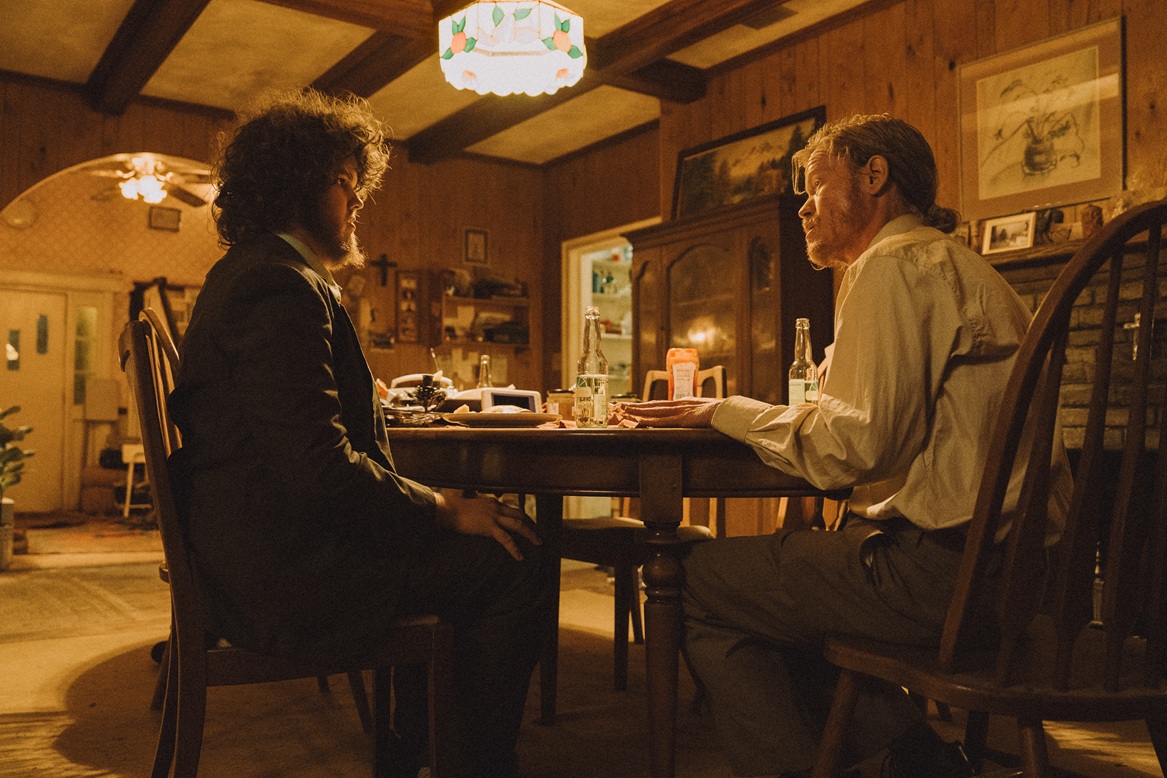
This cannot be overemphasized in situations like this. But how do we make use of it? In essence, it calls for us to draw upon the two components that factor into the process of belief formation: our intellect and our intuition. Each plays a valuable role in this process, and, theoretically speaking, they should be given equal weight. However, in an existence like ours, where we tend to place more emphasis on all things tangible, rational and logical, we often give more credence to the intellect at the expense of the intuition. By placing so much emphasis on “the facts,” we could well overlook valuable information that only the intuition can uncover, causing us to miss significant pieces of the puzzle we’re faced with trying to solve.
At the same time, though, by overemphasizing the intuition – our so-called “gut feelings” – we can end up drawing the wrong conclusions from the inputs of insight available to us. We might inadvertently and disproportionately blow up observations that we chalk up to “evidence” to unrealistic levels of pertinence. And, by doing so, we could well envision probabilities that are way off the mark and lead to misguided conclusions, prompting us to gloss over or ignore what ultimately matters most.
So which of these scenarios is applicable here? That’s hard to say. What Teddy and Don, as well as audience members, must do is work the process, employing the powers of the intellect and the intuition to arrive at well-considered, sincerely discerned beliefs. And, in the process, they may find that neither of the two prevailing perspectives proves correct in the end. One of the beauties of our beliefs is that they can assume an infinite number of forms, some of which may not be readily apparent when we launch into the process. But, even if one of the more likely probabilities should turn out to be true, we should then employ the foregoing process to arrive at beliefs that provide for the best possible solutions for all concerned, as an infinite range of outcomes is available in this application of our beliefs, too. The question here, though, is, are we up to the task? With everything that’s at stake, we had better hope that we are.
As with nearly all of his previous pictures, filmmaker Yorgos Lanthimos – easily one of the hottest and most prolific directors in the business these days – has served up yet another thought-provoking, multilayered offering, one that not only entertains, but that also enlightens on myriad levels. Based on the 2003 South Korean release “Save the Green Planet!,” this modern-day fable encourages us to open our eyes and our minds to think for ourselves, to peer behind the veils that seek to obscure our views, and to avoid falling into the trap of blindly embracing herd mentality, especially given the potential ramifications that await us if we fail on any of these points. And the director accomplishes this through a masterful blend of dark, satirical comedy, poignant drama, and inventive sci fi/fantasy, employing a narrative that continually alternates in its viewpoint to intentionally push us to make use of our power of discernment, a skill that could prove essential in determining the direction of our own ultimate destiny.
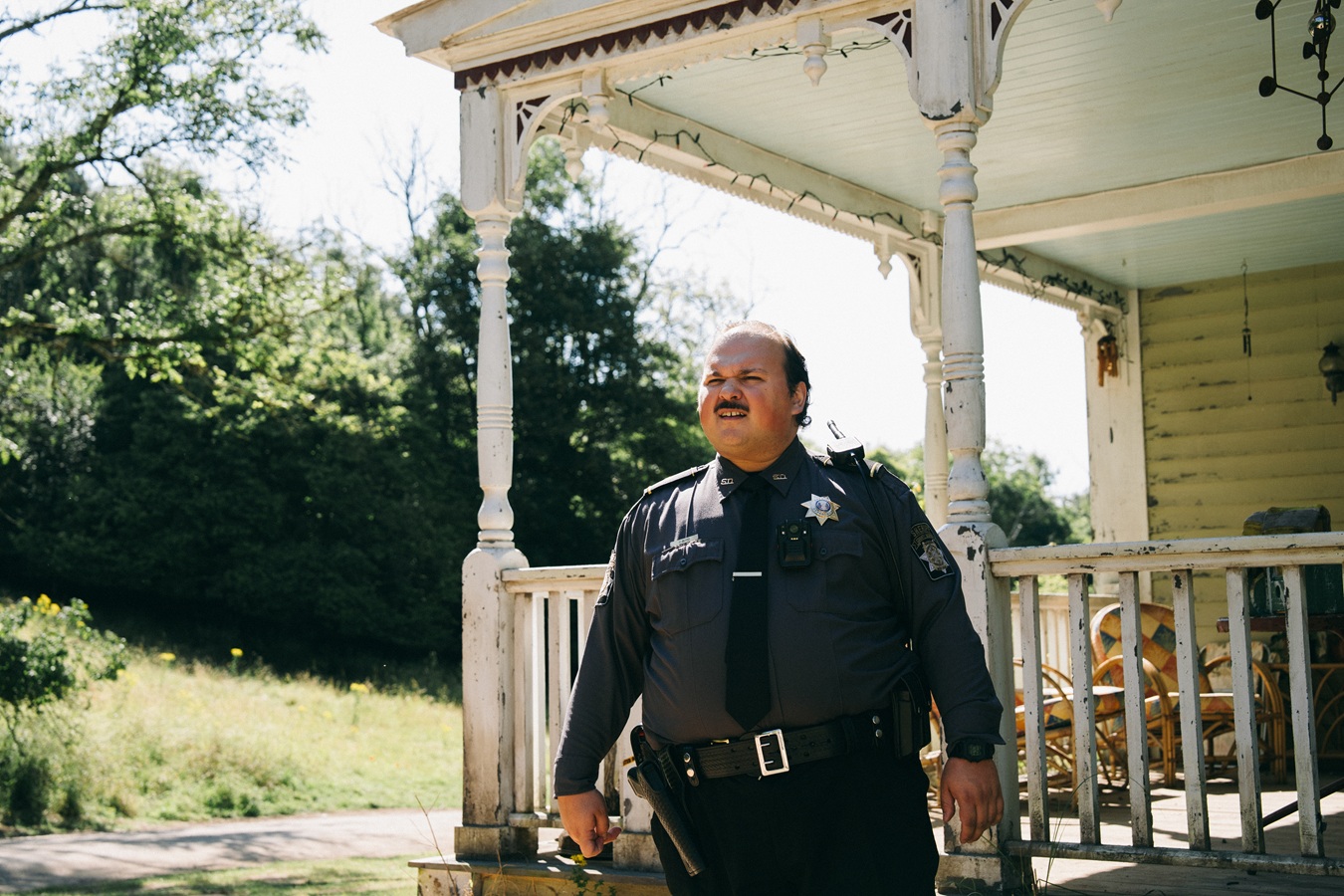
In addition to the film’s dual core story threads, “Bugonia” incorporates a number of intriguing subplots involving themes related to questions about corporate motivations, unbridled greed, the sincerity (or lack thereof) behind public health initiatives, environmental protection and even the true nature of Earth’s long-buried ancient past. It all makes for an engaging mix of influences that never fails to captivate, an attribute made stronger by the fine, award-worthy performances of the three principals, a smartly penned screenplay, clever special effects, and an edgy, dramatic original score. Admittedly, a few pacing issues crop up at times, and several incidents of graphic violence may be more than what sensitive viewers can handle. But, those minor considerations aside, “Bugonia” is the first stellar awards season release to appear in this year’s movie marketplace. This decidedly quirky offering probably won’t appeal to everyone, and viewers may not come away from it with any greater sense of clarity in terms of how to distinguish truth from deliberately concealed fiction. But, if nothing else, it gives us all much to think about as we attempt – no matter how successfully or futilely – to figure out what’s really going on in our world and what we might be able to do about it. The film is currently playing theatrically.
Life certainly has been strange of late. In the midst of this weirdness, it’s become increasingly difficult to determine what’s up and what’s down, what’s left and what’s right, what’s black and what’s white. We’ve taken some hits, but we’ve also dodged some bullets along the way. And, through it all, our powers of discernment have definitely been tested. But we haven’t always helped our own cases, either, by letting our imaginations get the better of us, willfully turning a blind eye to significant developments or capitulating to group think as the path of least resistance. Considering the gravity of the conditions we’re up against these days, we simply can’t afford to roll over and pursue convenient default options such as these. We need to make a concerted effort to determine what’s real and what isn’t, as well as to figure out how to address these issues while it’s still feasible to do so. This may not be easy, but the cost of inaction or ambivalence can be much higher. Consider that the next time you’re tempted to give up or to willingly accept whatever easy choices come your way. The reality behind that may lead to more than what we’re prepared to bear.
Copyright © 2025, by Brent Marchant. All rights reserved.



